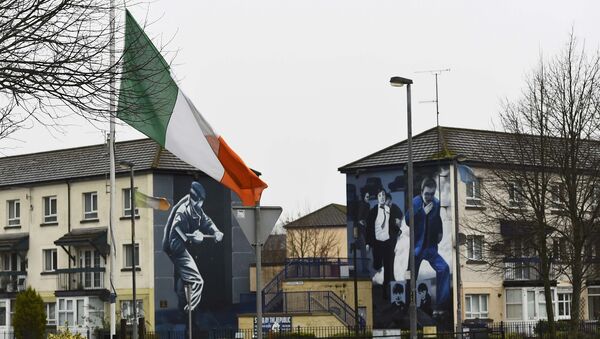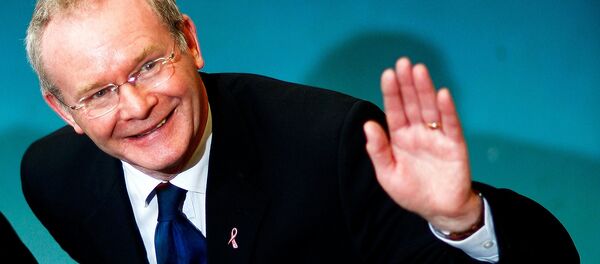The Northern Ireland executive government collapsed, January, when the deputy First Minister, the republican Sinn Fein's Martin McGuinness resigned, following a row over a botched renewable energy scheme originally masterminded by the Democratic Unionist Party (DUP)'s leader and First Minister Arlene Foster.
The Northern Ireland peace process — as agreed under the Good Friday agreement of 1998 — ended decades of violence between unionists, who are mostly Protestants who want Northern Ireland to remain within the United Kingdom and Irish nationalists/republicans, who are predominantly Catholics, who want Northern Ireland to be rejoined with the 26 counties comprising the Republic of Ireland in an independent united Ireland.
Gerry Adams explains the Sinn Féin position on talks at Stormont and the formation of an Executive: https://t.co/RLwzWovt13
— Sinn Féin (@sinnfeinireland) 27 March 2017
Under the agreement, the two major parties elected to the Northern Ireland Assembly enter into a power-sharing agreement, whereby the majority party nominated the First Minister to the Executive, which carries out the work of the devolved government, while the second largest nominates the deputy First Minister.
Following the election, May 2016, the Democratic Unionist Party (DUP) and Sinn Fein won the most seats and the DUP nominated Arlene Foster as First Minister, with Sinn Fein nominating former IRA paramilitary commander Martin McGuinness as deputy First Minister.
However, McGuinness resigned, January 9, over a row between the two parties over the Renewable Heat Initiative (RHI) originally overseen by Foster, which was supposed to incentivize people to switch to renewable, but which ended in farce when the scheme paid out more than the cost of the fuel, leaving taxpayers with a bill of up to US$486 million.
Deadlock
Under the terms of the Northern Ireland Act 1998, if either the First Minister or the deputy stands down, the other automatically loses power, triggering an election. In the ensuing election, March 2, the DUP lost its long-term majority and all parties are now deadlocked, with Sinn Fein refusing to form an alliance with the DUP. McGuinness died after a short illness March 21, further exacerbating the political situation.
Arlene Foster regrets spirit of reconciliation that flowed from her attendance at Martin McGuinness's funeral not built upon. pic.twitter.com/K5QFQddpgG
— Gerard Moriarty (@GerryMoriartyIT) 27 March 2017
Under the terms of the Good Friday agreement, if no agreement on a coalition is reached within three weeks of the election — which is 1600 UK time, March 27 — direct rule could be re-imposed from London — a politically dangerous route to take, historically — or another election has to be called.



